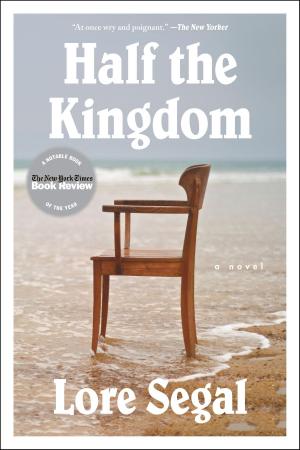| Author: | Stendhal | ISBN: | 9781612193212 |
| Publisher: | Melville House | Publication: | August 12, 2014 |
| Imprint: | Melville House | Language: | English |
| Author: | Stendhal |
| ISBN: | 9781612193212 |
| Publisher: | Melville House |
| Publication: | August 12, 2014 |
| Imprint: | Melville House |
| Language: | English |
Brigands, convents under siege, a prince who’d do Machiavelli proud . . . This adventurous novella from a writer famous for far longer works is a singular take on love and war in Renaissance Italy.
Claiming to be translating from sixteenth-century manuscripts, Stendhal tells the story of two doomed young lovers—one the daughter of the wealthiest man in the district, the other a brigand. It’s a genuinely moving tale of impossible love—with plenty of swordfights thrown in—that’s unique in Stendhal’s oeuvre, not least in its portrait of an intelligent woman who, ill-starred in love, turns to worldly power. There’s also some sparkling analysis of the conditions that produced the great art of the Renaissance.
But The Abbess of Castro—first published in the same year as Stendhal’s novel The Charterhouse of Parma—is also characterized by themes that pervade his longer novels: political and familial machinations, a profoundly unsentimental view of war, ambitious individuals undone by passion.
Never before available as a standalone edition, the novella is a powerful dose of the writer at the peak of his skills.
Brigands, convents under siege, a prince who’d do Machiavelli proud . . . This adventurous novella from a writer famous for far longer works is a singular take on love and war in Renaissance Italy.
Claiming to be translating from sixteenth-century manuscripts, Stendhal tells the story of two doomed young lovers—one the daughter of the wealthiest man in the district, the other a brigand. It’s a genuinely moving tale of impossible love—with plenty of swordfights thrown in—that’s unique in Stendhal’s oeuvre, not least in its portrait of an intelligent woman who, ill-starred in love, turns to worldly power. There’s also some sparkling analysis of the conditions that produced the great art of the Renaissance.
But The Abbess of Castro—first published in the same year as Stendhal’s novel The Charterhouse of Parma—is also characterized by themes that pervade his longer novels: political and familial machinations, a profoundly unsentimental view of war, ambitious individuals undone by passion.
Never before available as a standalone edition, the novella is a powerful dose of the writer at the peak of his skills.















